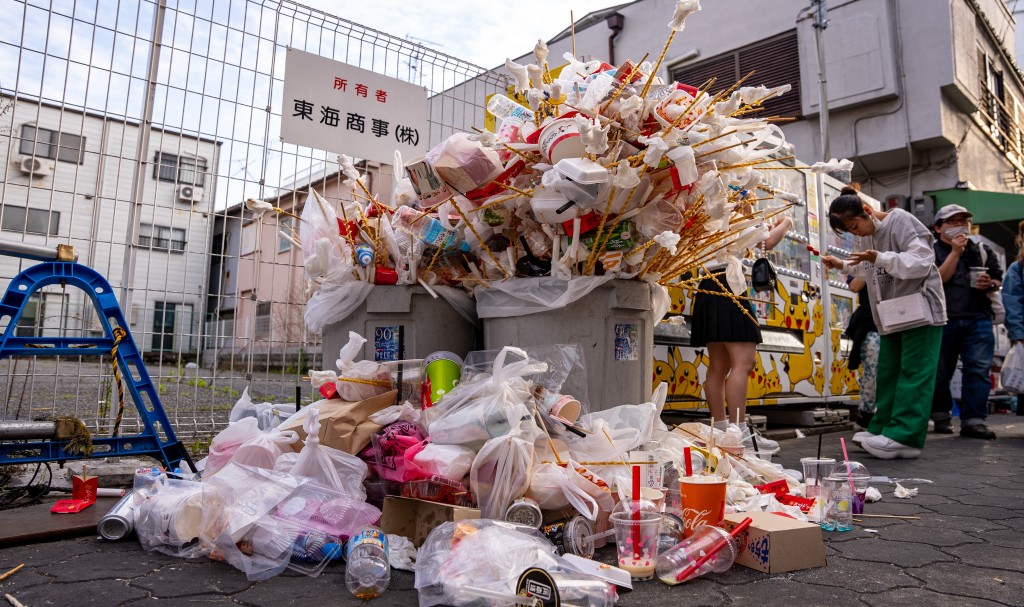[ad_1]

Asian Scientist Journal (Jan. 03, 2023) —In a brand new research, researchers from Kyushu College and a Yokohama-based startup known as Sotas Co., Ltd. offered a novel method to assist meet Japan’s formidable objectives of carbon neutrality by 2050. Japan ranks second in producing plastic waste per capita, globally. The research, revealed in Sustainability, highlighted the significance of surroundings pleasant bioplastics and known as for a serious change within the nation’s insurance policies.
The principle method Japan presently removes plastic waste is by thermal recycling or incineration, resulting in launch of carbon dioxide, a fuel that contributes to local weather change, into the environment. This has prompted the federal government to hunt out greener, much less typical technique of reaching carbon neutrality.
“We have now examined whether or not switching to extra sustainable recycled plastics and bioplastics is a aggressive and efficient different to present carbon discount insurance policies,” stated Andrew Chapman, professor on the Worldwide Institute for Carbon Impartial Power and Analysis, Kyushu College, in an article revealed by the college. Chapman is the corresponding writer of the research.
The researchers checked out six widespread plastic sorts. 4 key standards—world warming potential, value, recyclability, and perceived high quality for producers—shaped the idea of their evaluation. The researchers then calculated the desirability of every plastic kind below varied eventualities, shedding gentle on the complicated trade-offs concerned.
Virgin plastics, instantly derived from fossil fuels, had been discovered to be of excessive perceived high quality however got here with a steep world warming potential and elevated prices. Recycled plastics, alternatively, offered a extra sustainable and cost-effective answer, with a decrease world warming potential. Nevertheless, recycled plastics will be recycled as much as some level and are of lesser high quality, which raises pink flags of their steady use. Yuuki Yoshimoto, President of Sotas Co., Ltd, identified the necessity for a strong, centralized chain to make sure high quality assurance.
“It’s essential to determine a dependable system to trace what number of instances a bit of plastic has been recycled to offer high quality assurance to finish customers,” stated Yoshimoto.
The research stated that the bioplastics is usually a potential game-changer due to their lowest world warming potential. To the researchers’ shock, some variants of bioplastics even exhibited carbon negativity. Nevertheless, they’ve increased manufacturing prices, restricted drop-in replacements, and the necessity for crop-based bioplastics to develop on giant fields of arable land. Professor Chapman urged additional analysis into cellulose-based bioplastics produced from wooden pulp, which doesn’t have an effect on land use for meals manufacturing.
The excellent news is that folks in Japan are already prepared to pay extra for environment-friendly bioplastics.
“It is a complicated state of affairs, with no one-size-fits-all answer. Finally, we hope this evaluation may also help policymakers determine what recycling processes to assist and inform producers which plastics can finest meet their manufacturing and carbon discount objectives,” Yoshimoto stated.
—
Supply: Kyushu College ; JoshuaDaniel / Shutterstock.com
The article will be discovered at: Towards Economically Environment friendly Carbon Discount: Contrasting Greening Plastic Provide Chains with Various Power Coverage Approaches
Disclaimer: This text doesn’t essentially mirror the views of AsianScientist or its employees.
[ad_2]
Source link

